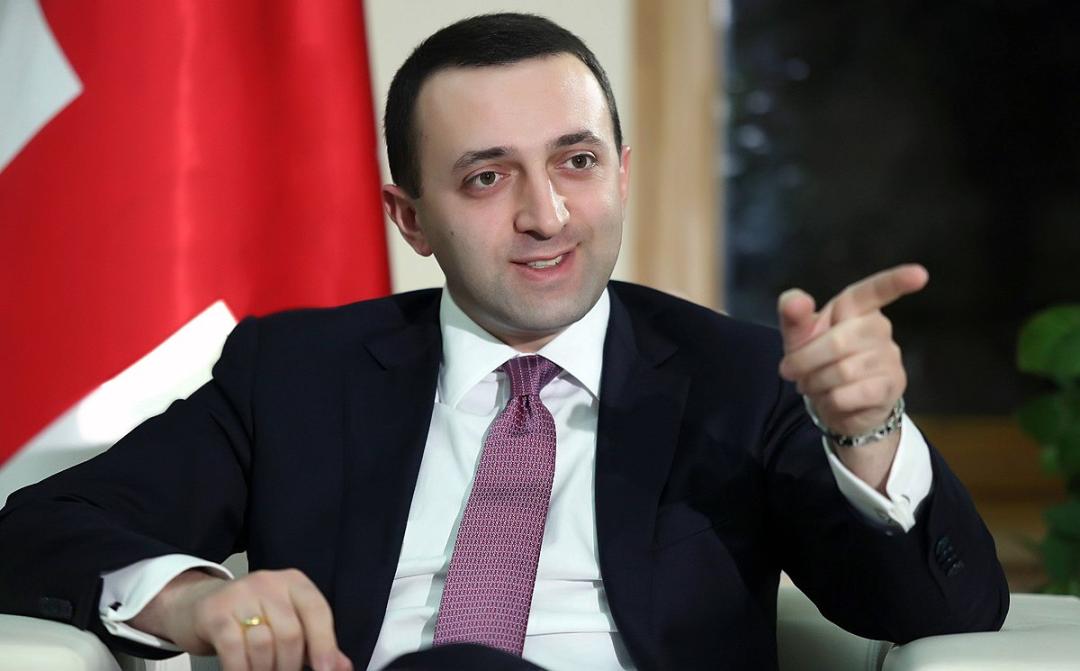
Georgian Dream names Garibashvili as Prime Minister candidate after Gakharia’s resignation

On 18 February, the ruling Georgian Dream (GD) political party nominated Georgia’s Defence Minister Irakli Garibashvili as the candidate for the prime minister post, following the resignation of Giorgi Gakharia (Caucasus Watch reported).
The Chairman of GD Irakli Kobakhidze stated that the party unanimously voted on Garibashvili’s nomination. “Garibashivli is one of the leaders who, in the most important period for our country, first held the position of Minister of Internal Affairs, and then the position of prime minister, and now he holds the position of Minister of Defence. Significant reforms have been carried out during his tenure as prime minister and defence minister, he is a professional with distinguished experience who can successfully lead the work of the government and take care of overcoming the challenges our country is facing,” stated Kobakhidze.
While speaking on his nomination, Garibashvili vowed to solve the current challenges in Georgia, including the Covid-19 pandemic, unemployment, economic poverty and the restoration of balance in the country’s political landscape. The opposition denounced Garibashvili’s nomination, calling the GD’s decision as “comical.” “I never lied. I pledged not to pay the bail, and I did so. I claimed they would not arrest me, and you see, it came true. I promise now that Georgia will hold new elections. It’s up to GD whom they nominate for the premiership,” stated the leader of the United National Movement (UNM) Nikanor Melia. The leader of the Citizens’ party Aleko Elisashvili stated that Gharibashvili was the worst candidate for the prime ministerial post and that his party would not support this decision in the parliament.
Irakli Garibashvili served as the country’s Prime Minister from November 2013 to December 2015. He was the second Prime Minister under the GD leadership, replacing the founder of the party Bidzina Ivanishvili in the role. In his resignation address in 2015 Garibashvili said that “posts are temporary” and the only permanent things were God and the homeland. Garibashvili returned to Georgian politics in March 2019 as the political secretary of the Georgian Dream-Democratic Georgia party. In September 2019 he was appointed the country’s defence minister and continued in the role after the 2020 parliamentary elections.
While addressing Melia’s case, the speaker of Georgia’s parliament Archil Talakvadze stated that “any court of a democratic state would have ruled this way if a violent attack on its institutions had taken place.” He emphasised that the rule of law was the only basis for fair cooperation between the political parties. Mamuka Mdinaradze from the GD said that the opposition’s main demand of holding snap parliamentary elections was not on the agenda. “If the opposition was and is still expecting any suggestion on their main demand, the parliament has set up an investigative commission to answer the questions about the election issues upon the initiative of the Georgian Dream faction and they can join it,” he stated.
Meanwhile, Georgia’s President Salome Zourabichvili and Georgia’s foreign partners continued expressing their worries that the political situation in the country might come to a boiling point after Gakharia’s resignation and Melia’s arrest. “Nine months ago, I made a personally difficult and painful decision for society that was aimed at maintaining state stability, and which served to prevent a political crisis and polarisation. Unfortunately, polarisation, tensions and confrontation continue to increase on a daily basis. Putting the electoral results declared legitimate under question, using any type of disobedience, and encouraging social and public protests serves only to weaken and destabilise the country,” stated Zourabichvili.
“Today, I held a meeting with representatives of the diplomatic corps and discussed the current situation in detail. I believe that there is a need for immediate de-escalation of the situation and easing of tensions, which need, first of all, a real constructive dialogue so that these processes do not damage the stability of the country and its international image. Through my experience, I am ready to support all forms of dialogue, but I am convinced that compromise is only justified when both sides are ready for constructive dialogue and not when concessions are perceived as weakness, or even more so when it can be seen as someone’s own victory,” she added.
The European Union urged both the authorities and the opposition in Georgia to act with utmost restraint and responsibility to avoid further escalation. “The European Union strongly believes that the political deadlock can only be resolved through sincere political dialogue. We call for immediate de-escalation in the interest of the country, and of all Georgian citizens,” the EU statement read.
The NATO Parliamentary Assembly President Gerald Connolly gave a similar statement. “I strongly believe in the promise of a healthy democracy in Georgia as the only way to unlock the nation’s enormous potential. Unfortunately, recent political trends including deepening political polarisation are at cross-purposes with the functioning of a fair democracy acting in the interests of all Georgian citizens. Just ten days ago, I reintroduced the Georgia Support Act in the U.S. Congress. This bill demonstrates the United States’ robust support of Georgia’s sovereignty and security, especially in the face of Russian aggression. Overcoming the protracted political impasse is crucial for Georgia’s democratic future and its Euro-Atlantic integration. This can only be achieved by creating the conditions necessary for dialogue and trust between the majority and the opposition,” he stated.
See Also


Mirzoyan Meets US Deputy Assistant Secretary Joshua Huck

Azerbaijani President Holds Talks with UAE and German Business Delegations on Economic Cooperation

Grigoryan Confirms Armenia’s Readiness to Dissolve OSCE Minsk Group Upon Peace Treaty Signing

Azerbaijani Official Warns of Ecological Risks to Caspian Sea, Similar to Lake Urmia and Aral Sea

